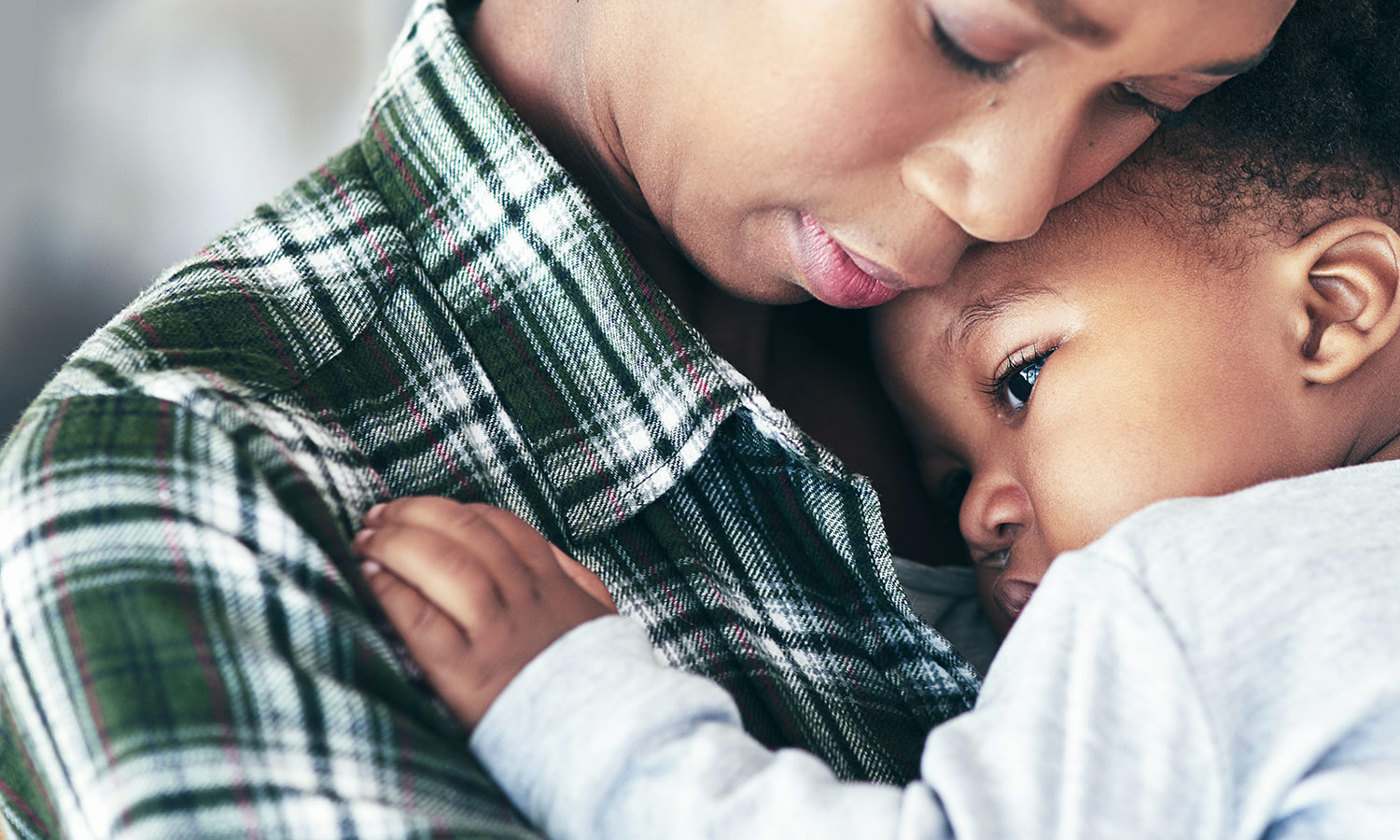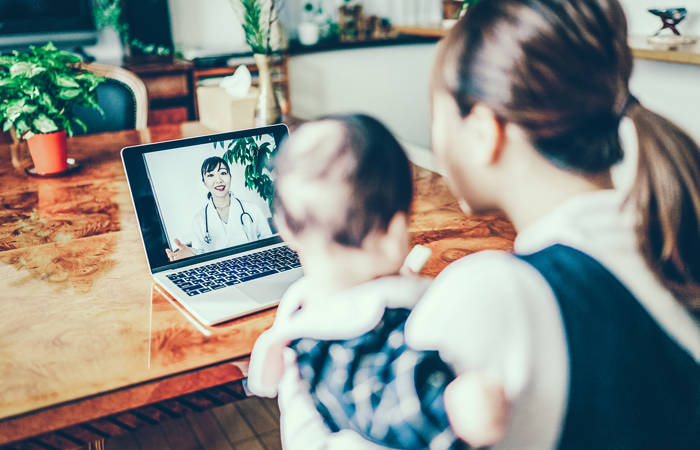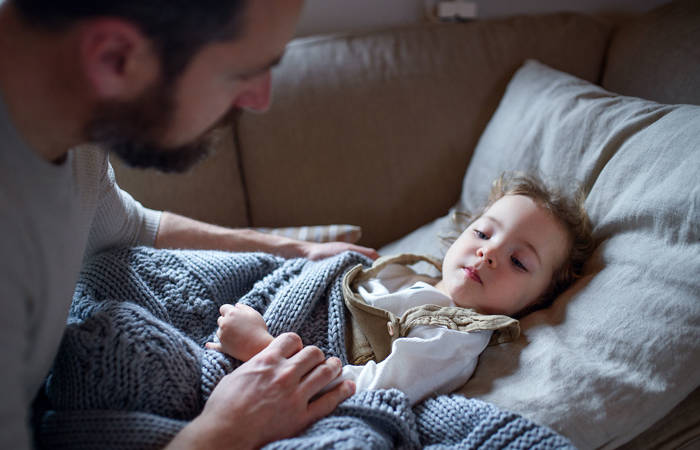Like what you see?
Sign up to receive more free parenting advice.
Thank you for subscribing to our newsletter!
Child Development

Credit: iStock.com/PeopleImages
COVID has made us all focus on health but most parents will experience the ‘sick’ stage with very young children.
It is a time when children first become exposed to the world’s many viruses and seem to go from one cold to the next.
The bad news is that it’s almost an early childhood rite of passage.
The good news is that there is light at the end of the germ-ridden tunnel.
“In those first five years of life, children are exposed to over 200 different viruses,” Liz Crowe, registered nurse and co-founder of Family HQ says.
“Their body just has to build up its immunity to these viruses.
“It’s just part of being a child, and unfortunately, it can be a really long, hard slog for working parents.”
While the finger often gets pointed at play groups and day care for being the epicentre of viruses, Liz says that the reason viruses seem to spread more easily in these settings is simply because young children just don’t have the hygiene practices older children can learn.
“When children come into contact with other children, the transfer of germs is nearly always impossible to eliminate, especially in those younger years,” says Liz.
The good news for working parents who place their child in care is that it’s short-term pain and can, in fact, build their immunity.
A 2010 Canadian study found that while young children who attend large day care centres had higher rates of respiratory tract infections and ear infections, they had lower rates of those infections during primary school.
While it can be challenging for working parents to have a sick child at home, it is important to remember the educational, social and emotional developmental benefits of early learning centres for children.
Liz points out that no child is immune from going through the ‘sick’ stage, even if they don’t attend day care.
“Children who don’t go to day care are still exposed to viruses,” she explains.
“For example, if they go grocery shopping with their parents and sit in the trolley, they can contract viruses from simply touching that trolley.
“Children who go on play dates with other children, or group play sessions are just as likely to spread viruses.
“Then there are older siblings who attend school who can bring viruses home.
“Finally, there are family who visit, and even Mum and Dad who can pick up a virus at work and bring it home.
“Today, it would be very rare for children to have no exposure to anyone else.”
The best thing to come out of COVID-19 is it’s changed the culture of dosing sick children with medication and sending them to day care, or still turning up for that play date.Liz Crowe
Stay up to date with the latest news and articles from First Five Years
Thank you for subscribing to our newsletter!
What to do when children get sick
As tempting as it is to continue with the regular daily schedule, Liz recommends keeping children at home and rested while they are sick.
“The best thing to come out of COVID-19 is it’s changed the culture of dosing sick children with medication and sending them to day care, or still turning up for that play date,” she explains.
She also recommends extra sleep and access to comfort and cuddles, “children will feel miserable when they are sick, just like adults do when we get a cold”.
Liz says lots of small sips of water and trying to get in good, healthy meals, when you can, will also help.
“It’s also about managing symptoms with paracetamol and ibuprofen,” she adds.
If the child is sick for more than three days and their symptoms aren’t improving, Liz recommends taking them to the family GP.
“I also recommend seeing a GP if children are continuously sick, sure, it might just be another virus, but it could also be something else, like large, inflamed adenoids, which might need a referral to a specialist,” she says.
Liz advises being aware of children with repeated ear infections as it can affect their speech development and recommends parents talk to their GP if they have any concerns.
Being an employee and parent
The most recent census data found that 66.4 per cent of couple families with dependants had both parents working.
As for one parent families with dependants, 61 per cent were employed.
The guilt of calling in sick (again) and arguments over whose turn it is (with those who have partners), can add stress to parents who try to balance their work commitments with their parenting responsibilities.
“Organisations offer the legislated ten days of personal/carer’s leave which is available to employees when there is a need to care for a sick child,” says Kiri Stejko, Chief Services Officer at Parents At Work.
“Beyond that, unpaid leave or flexible work options may be requested.”
Kiri says workplaces are more flexible than they were five or ten years ago.
She suggests that there might be options to work from home when children are unwell and recommends parents accept offers of help (or ask for help) from family and friends before requesting unpaid leave.
“When you return to work or start a new role, it is important to discuss the expectation to be juggling work and sick children with your employer and agree a rough plan for how to approach these situations,” she adds.
As for whose turn it is to stay home, it often appears women take on more than their fair share.
In a 2014 US study, the authors found mothers were ten times more likely to take time off work to care for sick children than fathers.
“Traditionally, women hold the lion’s share of caring responsibilities, but we are seeing this shift when there are two career focused parents – and then it’s a matter of negotiation – whoever can move things around more easily on that day, takes care of the sick child,” adds Kiri.
As for working single parent families, Kiri says the biggest challenge is that there is no ability to “share the load” so the impact is greater unless there is support from extended family.
“The ‘sick stage’ is a common problem, millions of parents around the globe are dealing with managing work and sick children every day, so it’s not something we should shy away from talking about or being open about in conversations with employers,” says Kiri.
“Soldiering on to the detriment of our own health is not a good strategy.
“It is important to prioritise care for both children and parents.”
Liz’s recommended immunity building strategies:
- Teach and model good hand hygiene.
- Ensure your child has a healthy diet, rich in vegetables.
- Ensure your child has good fluid intake (mainly water).
- If children aren’t eating well, a multivitamin and/or probiotic will help fill in the gaps.
The Family HQ app has a function to track illnesses which can be very helpful when seeing your GP or a specialist to be able to demonstrate the severity and length of the illness.






